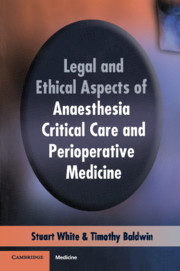Book contents
- Frontmatter
- Contents
- 1 Introduction
- 2 An introduction to the UK legal system
- 3 An introduction to medical ethics
- 4 Rights, and the Human Rights Act, 1998
- 5 Consent
- 6 Negligence
- 7 Confidentiality, and access to medical records
- 8 Abortion
- 9 Products liability
- 10 Research
- 11 Death and organ procurement
- 12 Professional regulation
- 13 Resource allocation
- Appendix: Important legal cases
- Index
10 - Research
Published online by Cambridge University Press: 18 August 2009
- Frontmatter
- Contents
- 1 Introduction
- 2 An introduction to the UK legal system
- 3 An introduction to medical ethics
- 4 Rights, and the Human Rights Act, 1998
- 5 Consent
- 6 Negligence
- 7 Confidentiality, and access to medical records
- 8 Abortion
- 9 Products liability
- 10 Research
- 11 Death and organ procurement
- 12 Professional regulation
- 13 Resource allocation
- Appendix: Important legal cases
- Index
Summary
‘Medical progress is based on research which ultimately must rest in part on experimentation involving human subjects.’
– Principle 4, Declaration of Helsinki (World Medical Association)All interventional medical treatment has resulted from research. Future cures or improvements in medical therapy rely on continued research, and this necessarily must include research performed on human beings. Observational research is without the remit of the law. Interventional research, however, is prescribed by rigid sets of ethical and practical guidelines (failure to comply with which is viewed poorly by the courts), and common law, particularly in relation to consent and medical negligence.
ETHICS
The quest for medical knowledge has not always been carried out in the most ethical of fashions. In the 1st century BC, for example, Cleopatra is reputed to have had a number of her handmaidens impregnated, and subsequently operated upon at certain times of gestation, in order to test the theory that it took 40 days for a male foetus to form, compared to 80 days for a female foetus. In 1796, Edward Jenner injected a healthy 8-year-old boy, James Phillips, with cowpox, then 3 months later with smallpox, in order to prove that the former provided defence against the latter. Between about 1850 and 1980, there are numerous documented reports of doctors in the US using soldiers, prisoners, orphans and others as subjects in research trials of dubious validity and value.
- Type
- Chapter
- Information
- Publisher: Cambridge University PressPrint publication year: 2004
- 1
- Cited by



